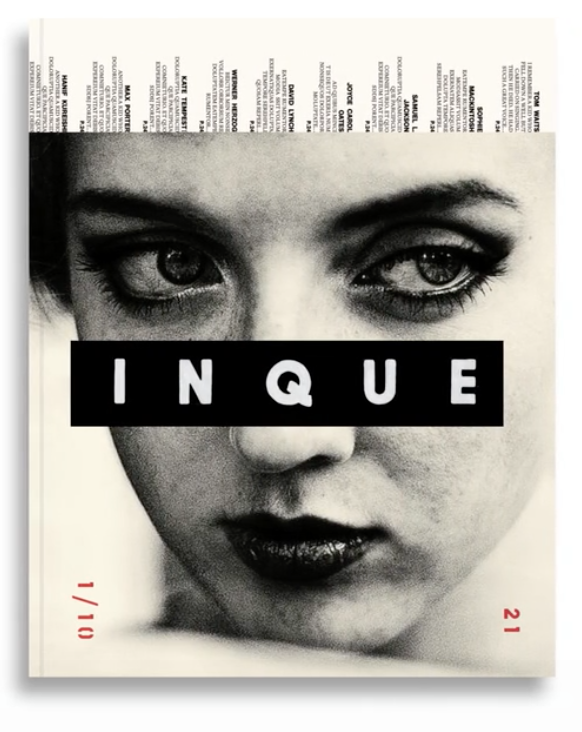 Dan Crowe and Matt Willey both have extensive experience in magazines. And they both have a love of the long, literary read that is so suited to print. So when the two of them teamed up to launch INQUE Magazine, they were pretty specific about what they wanted that magazine to become.
Dan Crowe and Matt Willey both have extensive experience in magazines. And they both have a love of the long, literary read that is so suited to print. So when the two of them teamed up to launch INQUE Magazine, they were pretty specific about what they wanted that magazine to become.
“Having worked extensively in publishing we have seen how magazines have become editorially constricted over the past 25 years,” explains their Kickstarter campaign page. “We’ve seen advertising commitments and excessive distribution costs become the norm, and sales dwindle — not because the audience has disappeared, but because authentic publications have.”
They are setting out to change that, by creating their own rules around which they will publish their literary magazine – once a year, with no advertising, for 10 years only, and only in print (they promise there will be no digital version; they believe the internet is oversaturated.)
“Being print only will ensure a slower experience, allowing the reader to take time to savor the high production values and unique content,” they write. They believe people do still love magazines – especially in print, yet creating something without the restrictions of relying on ad revenue will give them the kind of artistic freedom to explore and create something unique.
“It got us thinking: what if we removed these problems? What would it take to have complete creative control of a magazine? What would it look like, who would write for it, where would you buy it? This is the magazine we have always wanted to make: large format (280mm x 350mm), with extraordinary writers and artists; unusual, opinionated and inspiring editorial, all wrapped up in stunning design. Delivered straight to you from the people who made it,” they write.
Judging from their lineup of contributors, they are well on the way to creating a literary magazine with impact. But why cap the project at just 10 issues?
“Placing a limit on the issues will allow it to become a contained project, with a beginning, middle and end,” they explain. “We love the idea of INQUE being a finite set—magazines tend to go on and on—housing creative projects across the whole series which will, in 2030, conclude and create a whole.”
INQUE seems like a perfect magazine for this time – created with a specific editorial point of view, committed to producing in print, and funded by enthusiastic readers. As of this writing, the project has surpassed its fundraising goal by several thousand pounds, so it looks like I’m not the only one who feels this way.
We wish Mr. Crowe and Mr. Willey all the best and look forward to INQUE being a part of the world for the next 10 years.
